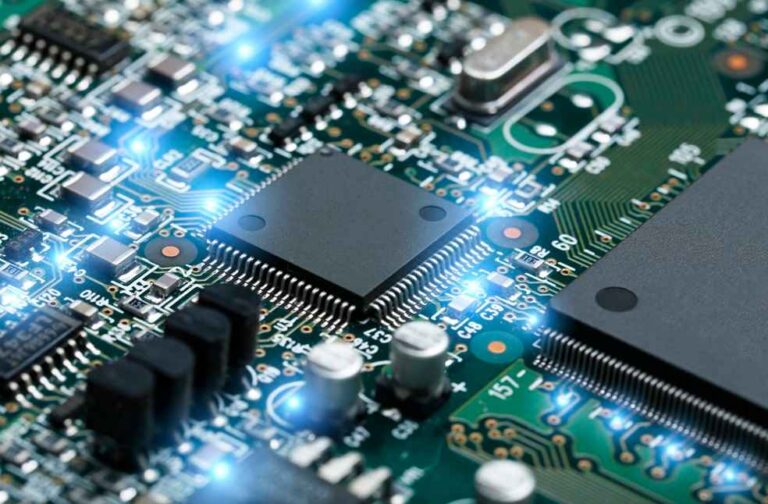United Kingdom: The government of UK has announced a £16.6 million investment for semiconductor researchers and businesses to access new equipment. This will allow them to test and construct chips for use in high-energy machines like electric cars and manufacturing equipment.
£14 million of the funding is targeted specifically towards semiconductors used in ‘power electronics.’ These chips are responsible for restoring and handling power in energy-intensive engines such as electric vehicles (EVs) and manufacturing equipment.
The newly developed tools, primarily located in Newcastle and Strathclyde, will aid researchers and businesses of all sizes in testing new inventions in power electronics and enhancing their semiconductor ‘packaging’ processes. This process involves adding intricate casings to silicon wafers, allowing them to interact with the devices they plan to process data for.

The United Kingdom’s Semiconductor Strategy determined new modes to package and test chips as key to enhancing semiconductor performance. Innovate UK provided funding for the project, which encourages, involves, and funds businesses developing life-changing innovations to create a more prosperous future.
Advanced packaging innovations are expected to decrease the power consumption needed to run semiconductors by enhancing their performance in high-demand applications, such as data centres and gaming. Additionally, these inventions will ensure that chips can efficiently dissipate heat in hot environments like manufacturing facilities.

Saqib Bhatti, the Technology Minister, said that, “New innovations in the way we package up semiconductors have the potential to transform whole industries and vastly improve consumer devices, all while driving long-term economic growth. This investment in open-access technology will make sure British researchers have the tools they need to rapidly turn semiconductor science into business reality, all while making hugely energy-intensive sectors more sustainable.”
The open-access tools will cover a wide range of processes involved in designing and testing semiconductors. These processes include slicing silicon wafers into smaller chips and bonding complex materials together to create chips.

The allowance will also be used to assist manufacturers in improving the technology used to automate assembly procedures. Additionally, it will assist in the building and testing of drives that are crucial in converting energy into motion in electric vehicles, manufacturing equipment, and other applications.
The funding will expand the existing UK network of machinery available to researchers and businesses through Driving the Electric Revolution Industrial Centres (DER-IC), which received £33 million in 2019. DER-IC works with firms like McLaren Applied to create more efficient electric products, including power electronics technology for automotive and aeroplanes manufacturers.



